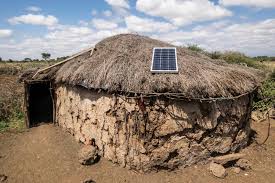
THE proposed 16 per cent VAT on solar equipment in the Finance Bill 2025, will lead to price increases of off-grid solar home systems by up to Sh2,000 per unit, an industry lobby group now says.
This increase hence puts clean, affordable energy out of reach for Kenyan households and threatens over 10,000 jobs nationwide, according to GOGLA, the global association for the off-grid solar industry.
The tax hike, its says, risks shrinking Kenya’s off-grid solar market by 20 per cent in the next 12 months, rolling back a decade of progress in expanding electricity access, especially in remote and underserved communities.
“This is not merely a theoretical concern,” said Patrick Tonui, head of policy and regional strategy at GOGLA, “When VAT exemptions were previously withdrawn in 2020 and 2021, the off-grid solar market contracted by 20 per cent. Reintroducing VAT now risks repeating that experience, dampening demand, reducing tax revenues and making solar less accessible for the households and enterprises that need it most.”
Tonui added that Kenya has made remarkable strides in expanding energy access and preserving those gains requires policy choices that continue to prioritise affordability, job creation and inclusive growth.
Kenya’s solar sector supported an estimated 30,000 jobs in 2024 and contributed over Sh4 billion in taxes, industry data shows.
GOGLA yesterday said reinstating VAT could force solar companies to scale down their operations, resulting in the loss of 10,000 jobs, often those serving rural communities with limited employment opportunities.
The fallout would ripple across the economy: last-mile agents would lose income, mobile phone use would decline as solar charging becomes unavailable, while farmers relying on solar for irrigation and refrigeration could face lower yields and higher costs.
Off-grid solar kits remain a lifeline for one in three Kenyan households that still live beyond the reach of the national grid.
Today, over three million households rely on off-grid solar products to light their homes, power businesses and support farming.
With VAT, even the most basic solar kits could become unaffordable for many. These increases come at a time when four in five off-grid users globally already cannot afford solar, even with financing.
GOGLA and the Kenya Renewable Energy Association (KEREA) are since urging lawmakers to maintain VAT exemptions on solar equipment in the Finance Bill 2025.
They have called on the government to continue prioritising clean energy affordability, job creation and rural inclusion—and to protect public programmes already working to close the energy access gap.
Kenya has been one of Africa’s biggest solar success stories. Over the past decade, electricity access has surged from 37 per cent in 2013 to 79 per cent in 2023, with off-grid solar accounting for more than 20 per cent of that growth.
Thanks to favourable policies and consumer financing, Kenya now has one of the highest per capita rates of off-grid solar use in Africa. In 2023, it accounted for nearly three-quarters of all solar home system sales in East Africa, progress that sector players say is now under threat.
“Kenya has made strong progress in expanding energy access, especially in underserved regions through initiatives like the Kenya Off-Grid Solar Access Project (KOSAP)” KEREA CEO Cynthia Angweya-Muhati said.
“Electrification in these regions remains well below the national average, with some counties as low as 15 percent. Reintroducing VAT could make solar unaffordable for those who need it most and risk slowing progress toward universal access.”
KOSAP, backed by the World Bank, was designed to reduce costs and bring solar to counties historically left behind—including West Pokot, Turkana, Marsabit, Isiolo, Wajir, Garissa, and others.










